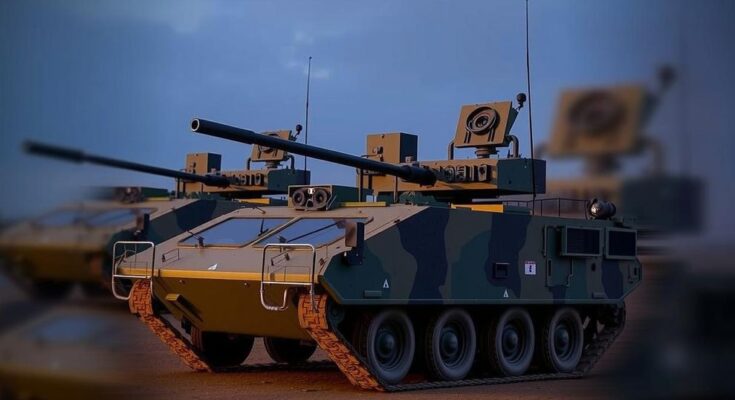A recent investigation by Amnesty International has revealed that French-manufactured military technology is being used in armoured personnel carriers in Sudan, potentially violating the UN arms embargo. The Nimr Ajban APCs equipped with the Galix defence system are deployed by the Rapid Support Forces. The organization calls for immediate action from France to cease such exchanges and to reinforce the arms embargo on Sudan.
Amnesty International has disclosed that French military technology is being utilized in armoured personnel carriers (APCs) manufactured in the United Arab Emirates (UAE) and deployed in Sudan, potentially violating the UN arms embargo on Darfur. In a recent investigation, the organization identified Nimr Ajban APCs armed with the French Galix defence system, used by the Rapid Support Forces (RSF) in ongoing conflicts within the region. These findings are alarming, as any application of the Galix system in Darfur categorically breaches international laws aimed at safeguarding human rights during armed conflict. The stealth defence mechanism, designed to protect vehicles from impending threats, was documented through social media posts and subsequently verified by Amnesty International. Secretary General Agnès Callamard emphasized that this constitutes a clear breach of the UN arms embargo, urging the French government to act decisively to halt the supply of such systems to the UAE. Amnesty’s research reiterated ongoing instances where arms flow into Sudan exacerbates humanitarian crises, highlighting the urgency for all nations to cease armament supplies amidst escalating violence. Additionally, the deep-rooted defence ties between France and the UAE have raised concerns about compliance with international laws. A French parliamentary report noted that between 2014 and 2023, French entities exported approximately EUR €2.6 billion in military equipment to the UAE. Despite the European Union’s arms embargo on Sudan, the UAE has often found ways to circumvent these restrictions, complicating efforts to maintain peace and security within the region.
The exportation of arms and military technology into conflict zones poses a significant risk to human rights and international humanitarian law. The history of arms embargoes against Sudan highlights the critical need for rigorous enforcement to protect civilians in regions plagued by violence. Amnesty International advocates for accountability among states and corporations involved in defence exports, particularly those impacting conflict-affected areas like Sudan. The existing UN arms embargo prohibiting the sale of arms to Sudan is a critical measure aimed at preventing exacerbation of the humanitarian crisis in Darfur, however, breaches continue to be reported, particularly due to the UAE’s past transgressions given its military dealings and partnership with France.
In conclusion, the involvement of French-manufactured weaponry in Sudan highlights serious violations of the UN arms embargo and raises questions about the obligations of nations in arms control. Amnesty International’s revelations call for immediate action from both the French government and international authorities to prevent further humanitarian devastation. Urging a broader embargo on Sudan, Amnesty International underscores the importance of stringent enforcement measures to safeguard civilian lives in ongoing armed conflicts.
Original Source: www.dabangasudan.org




